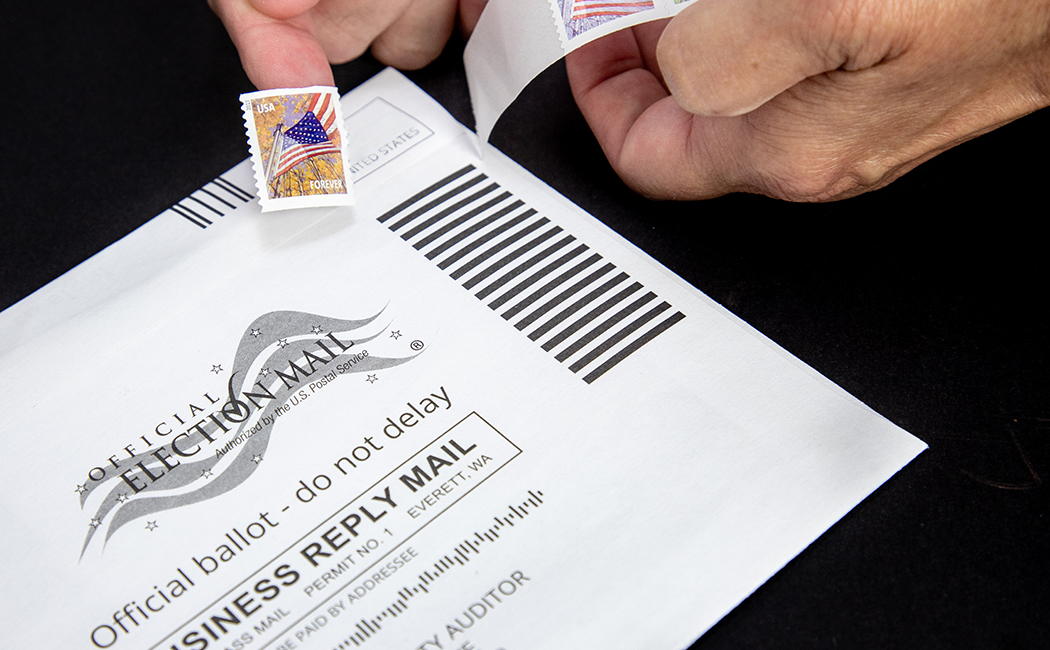Researchers also found ballot tracking was underutilized by voters in Georgia, Colorado and California; more awareness before November election could boost usage and voter turnout.
A new analysis from the Center for Inclusive Democracy at the USC Price School of Public Policy and the Elections & Voting Information Center (EVIC) found that voters in Georgia, Colorado and California who used a free vote-by-mail ballot tracking tool during the 2022 midterms reported higher confidence in the electoral process than non-tool users.
Voters who were signed up and used ballot tracking in these three states in 2022 were also more likely to vote in the midterm election than those who did not sign up to use the free tool, likely due to the tool’s built-in vote reminders and notifications sent regularly to users.
“Vote-by-mail is increasingly the way voters participate in elections, especially in California and Colorado,” said Mindy Romero, CID Director and one of the study authors. “When a voter can additionally track his or her mail-in ballot and be assured that it been received and processed, this reduces uncertainty and boosts trust in the electoral process. Our study found that more confidence in the vote-by-mail option also translated into stronger voter turnout.”
Key findings of the CID study, which included both 2022 midterm data analyses and surveys of voters in California, Colorado and Georgia, included:
- Ballot tracking use is highest in California and Colorado, states where vote-by-mail ballots are more commonly used and automatically sent to all registered voters.
- Ballot tracking users had notably higher turnout rates than those not using the tool in all three states examined, which held true across all racial, ethnic and age groups examined.
- Ballot tracking users had notably lower vote-by-mail rejection rates than non-ballot tracking users in the 2022 general election.
- Awareness of ballot tracking was highest in California and Colorado, states with high levels of vote-by-mail voting; concerns about ballots being received and counted were the top reasons given by respondents as to why they signed up for ballot tracking.
- In all three states, ballot tracking use was highest among middle aged vote-by-mail voters.
- Among voters who were not signed up for the tracking tool, the most common response in California and Georgia was that they were not aware they could track their ballot.
During the 2022 mid-term election, the states of California, Colorado and Georgia used the BallotTrax vote-by-mail tracking tool by i3Logix. BallotTrax is customizable for message delivery, notifications and language preferences and users can choose one or a combination of voice, email or text messages. Voters must sign up for the service in order to track their mail-in ballot.
“Ballot tracking has enabled millions of voters to track their vote-by-mail ballot throughout the entire voting process,” added Romero. “In the 2022 midterm election, ballot tracking users voted in higher numbers than the general population and had lower vote-by-mail-rejection rates than non-ballot tracking users. Clearly, many voters would benefit from greater outreach and education around the availability of these tools.”
Currently seven states (California, Colorado, Hawaii, Nevada, North Carolina, Rhode Island and Utah) and the District of Columbia use BallotTrax. BallotTrax is also available for use by voters in some counties in Oregon, Alaska, Arizona, Illinois, Ohio, Virginia, New Jersey, Maryland, Tennessee and Florida. As of this report’s release, Georgia is not using BallotTrax as its ballot tracking service provider in the 2024 general election, but is offering a different ballot tracking service to its voters.
Read the full report here.
Center for Inclusive Democracy (CID)
The Center for Inclusive Democracy (CID) is part of the USC Sol Price School of Public Policy. CID’s mission is to improve the social and economic quality of life in U.S. communities by producing non-partisan research that informs policy and on-the-ground organizing efforts through education and outreach for a more engaged, transparent and representative democracy. CID conducts pioneering research that explores voting behavior, civic engagement, as well as electoral and economic issues at the intersection of social justice and democracy.





